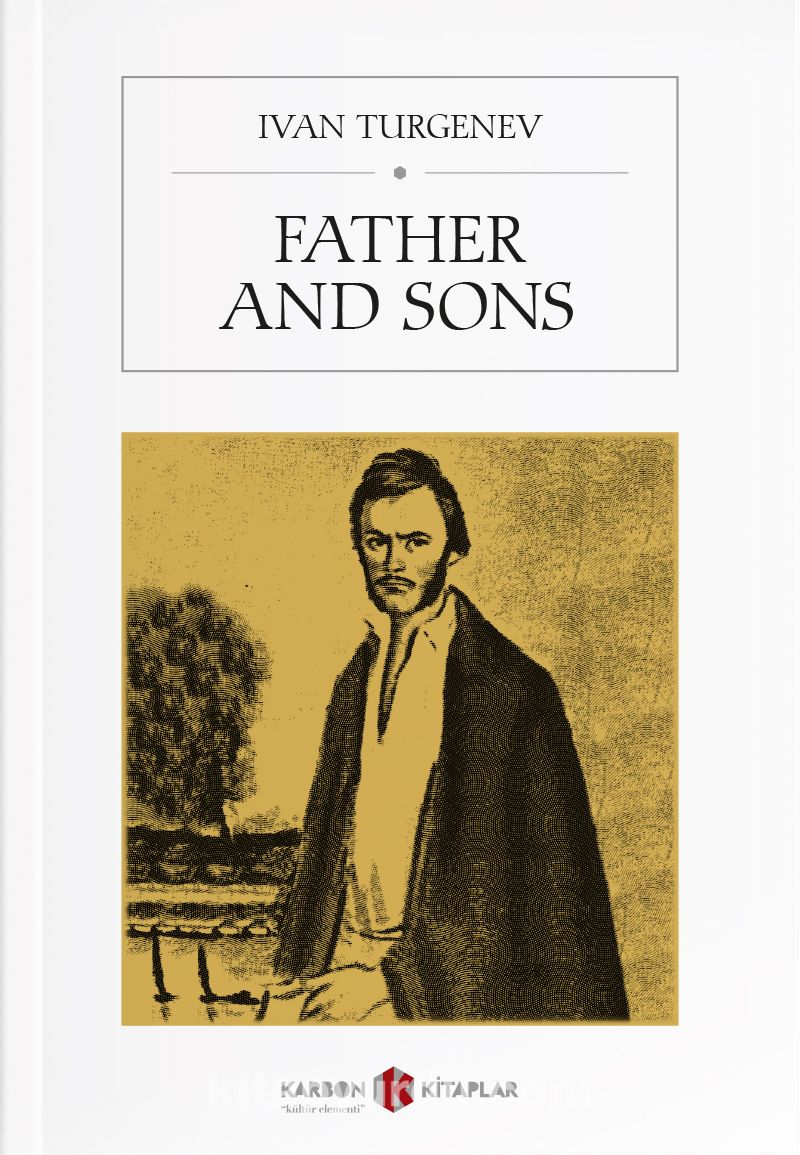Book Review | Fathers and Sons
Ivan Turgenev was born on November 9, 1818 in Orel, Russia. His father was from a noble family, but they had become poor. The cavalry colonel father Turgenev married Varvara Petrovna Lutovina, an old woman who owned the Spasskoye estate. Ivan was born from this marriage. His mother, who was educated, fond of education and culture, but also very harsh, would mercilessly punish and flog serfs who committed crimes. Turgenev’s ideas began to take shape at a young age due to these circumstances. When the family emigrated to Moscow in 1827, Turgenev studied in private schools and took lessons from private tutors. While still a child, he began speaking German, English and French as if they were his mother tongue. He later studied at Moscow and Petersburg universities. He graduated from the Faculty of Philosophy with high honors.
Later, he went to Germany. He entered the University of Berlin and stayed in Germany for 4 years. He studied history, classical philology, learned Greek and Latin. He returned to his homeland and passed the professorship exam at Petersburg University. At that time, German philosophy was not accepted in the country and was looked upon with suspicion, so he could not give lectures. 1842 was a turning point for Turgenev. At that time, he met the Russian critic Belinski. The people Belinski had a dialogue with were the intellectuals who opposed serfdom. Apart from his first literary attempts, his first serious works were in 1842. The path he chose was realism, which Pushkin introduced and Gogol developed. His first work that brought him fame was the series called “Notes of a Hunter”, which contained 25 stories in the 1880 edition. The subjects of the stories were the lives of the landowner and the peasant and the conditions they were in.
In 1852, after Gogol’s death, Turgenev wrote an article, and when this article, which was banned by the censorship, was published in Moscow magazines, he was arrested and spent a month in prison. He lives under police surveillance for the next year. After 1855, he begins to publish his great novels. In these novels, just like his mother, he portrays cultured farm owners and all of them have an evolutionary-liberal worldview. After 1862, he is subjected to attacks from critics in every novel he publishes. After an illness that lasted for two years, Turgenev dies on September 3, 1883, in the town of Bougival, near Paris, France. His funeral ceremony is held in Petersburg on October 9 of the same year. The plot of his novel Fathers and Sons, which left its mark on the literary world and is considered the cornerstone of Nihilism, takes place in 1859. Its epilogue tells the story of the period after the abolition of serfdom (1861). It realistically reflects the most important problems of Russian life during this period: the inhumanity of serfdom relations, the collapse of feudal-aristocratic Russia, and the rise of new bourgeois-democratic powers. In Fathers and Sons, he emphasizes nihilism, which is formed by the conflict between the reformist and radical movements. The fact that even an enlightened writer like Dostoyevsky called the hero of the novel, the nihilist Bazarov, “a made-up person” proves the difference between his novels.
Arkadi, a young son, goes to visit his father with his best friend Bazarov. Here, they start a life where they question life with his father, uncle or close friend Bazarov.
Fathers and Sons can be considered the first fully written modern novel example in Russian literature (Another one is Gogol’s Dead Souls, but this work has sometimes been considered poetic or epic prose like Dante’s Divine Comedy). The novel presents a dual character study, as can be seen in Bazarov and Arkadi’s gradual collapse in their revolt against sentimentality, and especially in Bazarov’s love for Anna Odintsova and Fenichka. This striking character dichotomy and deep psychological analysis, as clearly imitated in the novels of Tolstoy and Dostoyevsky, influenced the development of many great Russian novelists.
The novel is also the first Russian literary work to gain fame in the Western world, and its general acceptance by authoritative novelists such as Gustave Flaubert, Guy de Maupassant and Henry James is an indication that Russian literature owes a great deal to Turgenev.







